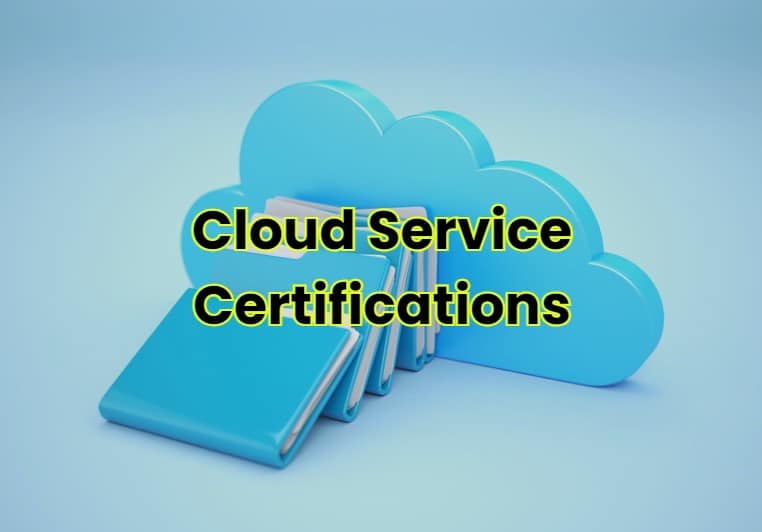
Cloud service certifications are crucial when choosing a provider as they ensure an organization understands its technology and services while bringing legitimacy to its business. These certifications are also necessary for compliance with various business standards. However, understanding all the certifications can be complicated and overwhelming.
Here is a brief overview of SWK’s Cloud Service certifications to help you navigate through them.
SOC Examination Certificate
Service providers that manage users’ sensitive information must provide structured documentation detailing their protective measures. This is where SOC examinations come into play. SOC, or System and Organization Controls, are essential for entities that provide services directly related to a user’s control systems, such as SaaS companies, financial reporting organizations, data centers, and payment processors. Different types of SOC reports help service organizations meet specific user needs. Here, we’ll explore the differences between SOC 1 and SOC 2 reports.
SOC 1
SOC 1 examines a service organization’s controls over financial reporting. Entities using these services may request a SOC 1 report to evaluate the effect of those organizations’ controls on their own financial statements. This report is crucial for the entities themselves and the CPAs auditing their financial statements.
SOC 1 focuses on controls over financial reporting and is primarily used by customers and their auditors. It applies to service organizations that impact the financial operations of users.
SOC 2
SOC 2 examines a service organization’s controls based on five criteria: security, availability, processing integrity, confidentiality, and privacy. This type of report may be requested by a broad range of users. Businesses might need detailed information and assurance about a service organization’s controls relevant to the security, availability, or processing integrity of the systems the organization uses to process users’ data. Additionally, the confidentiality and privacy of the information processed by these systems is available through these reports.
SOC 2 is designed for customers and prospects of service organizations that deal with sensitive information not related to financial reporting.
SOC 2 Typ1 and Type 2 Certifications
There are multiple levels to SOC 2 certifications, grouped into the Type 1 and Type 2 labels. The former validates the design of an organization’s security controls, while the latter validates their effectiveness in protecting data and network assets. SOC 2 Type 2 controls are assessed on an annual basis from the initial certification. SWK’s managed cloud, IT and security services have been Type 2-certified for 2024.
HIPAA Compliance
The Health Insurance Portability and Accountability Act of 1996, commonly known as HIPAA, outlines the lawful use and disclosure of protected health information (PHI). Regulated by the Department of Health and Human Services (HHS) and enforced by the Office for Civil Rights (OCR), HIPAA compliance is mandatory for two types of organizations: Covered Entities, which collect, create, or transmit PHI electronically, and Business Associates, which encounter PHI throughout work contracted by a covered entity.
HIPAA compliance requires self-audits, remediation plans, policies, procedures, employee training, documentation, and business associate management.
PCI-DSS Business Certification
PCI DSS (Payment Card Industry Data Security Standard) certification is essential for companies that process credit card payments. It makes sure that appropriate security controls are in place to protect cardholder data, reducing the risk of data breaches and secures compliance with industry standards.
PCI DSS focuses on ensuring cardholder data, maintaining secure networks, implementing strong access controls, regularly monitoring and testing systems, maintaining an information security policy, and conducting regular security awareness training for employees.
ISO 27001 Certification
ISO 27001, created by the International Organization for Standardization (ISO), deals with Information Security Management. It ensures that organizations are managing security risks and data effectively by maintaining an Information Security Management System (ISMS).
This standard helps organizations protect against data breaches, demonstrating a commitment to customer security concerns, and complying with regulations. The benefits of ISO 27001 certification include identifying and plugging security gaps, reducing risks of cyber-incidents, and demonstrating compliance with regulations.
The certification process involves:
- Defining the scope of the ISMS
- Establishing security policies and objectives
- Conducting risk assessments
- Developing treatment plans
- Implementing security roles and responsibilities
- Maintaining an asset inventory and access control policies
- Developing operating procedures and incident management protocols
- Ensuring business continuity and compliance with legal requirements
- Conducting regular internal audits and management reviews
While this may seem like a lot of hoops to jump through, many companies already have a few steps in place.
SWK Has the Certifications
SWK boasts a range of certifications, including all the ones discussed in this article, and numerous awards from various organizations. When choosing a cloud service provider, it’s crucial to select a partner who adheres to all necessary steps and procedures to ensure a high level of care and credibility. Contact SWK today to work with a multi-certified organization dedicated to making your business run smoother.
